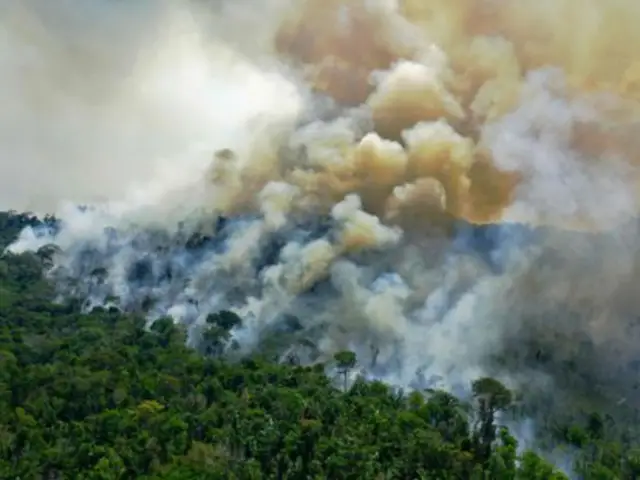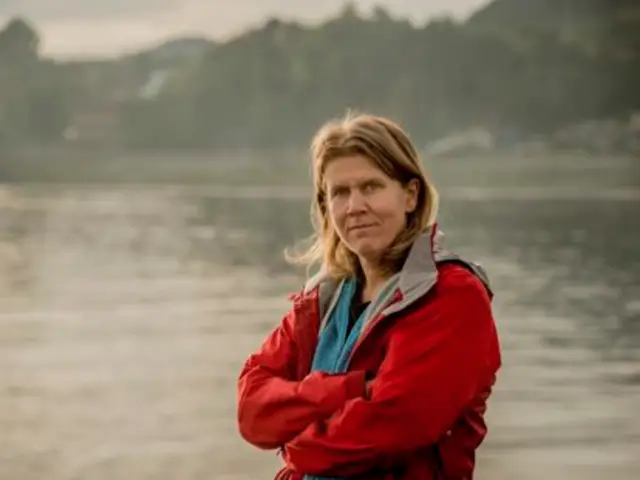Chilean President Gabriel Boric led, at the last Summit of the Americas, the launch of an initiative promoted by the South American country that seeks to create protected marine corridors from Patagonia to Alaska. Nine countries in the region signed the “Americas for the Protection of the Ocean” coalition, including the United States, Mexico and Colombia. One of the objectives of the agreement signed in Los Angeles is to work together to protect, or conserve, at least 30% of the Pacific Ocean by 2030, and to face 3 major crises: climate change, loss of biodiversity, and deterioration of the ocean.

“It is a fight for survival”, Boric explained. “The oceans are the main carbon sinks and have a crucial role in the fight against climate change”, added the Chilean president. About 30% of the CO2 that humans emit is captured by the surface layers of the sea, as well as most of the heat that the emissions generate.
During the first 2 years, Chile and Canada will lead the coordination between the Member States of this new agreement. “The world needs a united America”, said the Chilean president. “If we are able to use our leadership to protect what belongs to all of humanity, we will be contributing decisively, and we will be able to say more properly to developed countries, such as the United States -that it is not here present-, or the European Union, China and India, which have a duty to make more efforts to protect our environment”, added the Chilean president, although Washington was represented at the meeting by John Kerry, the White House’s special envoy for climate change.

The presidents of Colombia, Costa Rica, Ecuador, Panama and Peru participated in the event, as well as the foreign ministers of Mexico and Canada, in addition to the aforementioned authorities. “This effort is worthwhile not only for our generation, but for future ones”, said the Panamanian President, Laurentino Cortizo, who celebrated the initiative, in his opinion, as the “most important” of that summit.
Maximiliano Bello, from the organization Mission Blue, whose job is to influence States to create marine protected areas around the world, explains that the signed agreement is not binding: “It is kind of hybrid. This establishes concrete actions for the presidencies and imposes working groups, for example. Part of that hybrid agreement is also respecting some of the actions that are already taking place in the region, such as the tropical corridor of Panama, Colombia, Ecuador and Costa Rica. This coalition expands it, but it is a process that has been developing for 17 years”.
The commitment to establish protected marine areas in the region allows opening the door to preservation mechanisms. “Scientists say that at least 30% of the area has to be high and totally protected, without extractive activities, at least high-impact activities, such as industrial ones”, says Bello in a telephone conversation from Los Angeles, California. “And that the declaration speaks of conservation opens the door to other mechanisms that can also improve the sustainability of some of the activities”, adds the climate expert.
Chile’s leadership in this matter is not accidental; in fact, it is the country in the region with the largest protected marine area (43%). The Minister of the Environment, Maisa Rojas, assures in an email that one of the objectives of the Government of Boric is, with the support of the Global Environment Fund, to design a roadmap that allows “expanding the network of marine protected areas to increase the representativeness of unprotected ecosystems, especially in the center and north of the country where we want the protection of coastal and marine ecosystems to improve”.
One of the criticisms that the Chilean protection plan has received is that it is overdue in its continental coastal zone and that only 5 out of the 28 marine areas with some category of protection have a management plan. In response, Minister Rojas affirms that they have already approved 4 management plans for marine and coastal protected areas of multiple uses and that they are working on the formulation of another 6 plans, “along with the efforts to launch governance instances and monitoring campaigns”.

